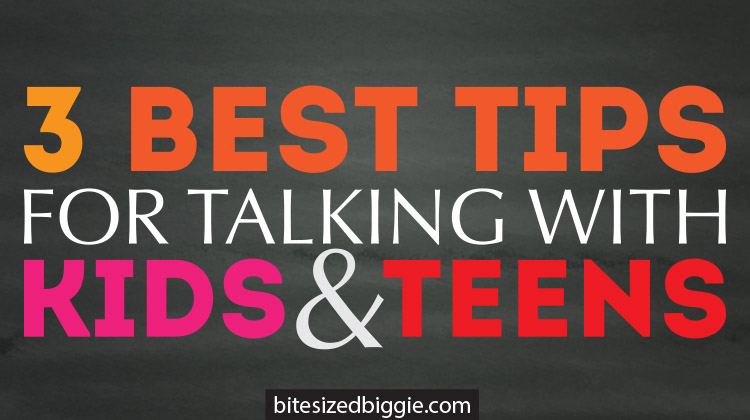 Greetings – I’m Jen! I’m a mom, teacher, blogger, and asker of curious questions. I love asking questions so much that my friend and I developed these question cards that can be used with kids and teens (and adults). A really good question can spark a juicy conversation with anyone at any age. Thus, I wanted to share my secrets for asking great questions today that make talking with kids and teens more enjoyable.
Greetings – I’m Jen! I’m a mom, teacher, blogger, and asker of curious questions. I love asking questions so much that my friend and I developed these question cards that can be used with kids and teens (and adults). A really good question can spark a juicy conversation with anyone at any age. Thus, I wanted to share my secrets for asking great questions today that make talking with kids and teens more enjoyable.
3 Tips for Talking with Kids and Teens
#1: Ask “how” and “what” questions
The biggest mistake parents, teachers and others make when talking with kids and teens is asking the wrong style of question. How and what questions are the meatiest and avoids blame, the who’s-who-game and feeling like you are being attacked. When you ask why and who questions stop yourself and reword. For example, if you normally might ask, “Why did you choose electricity for your science fair project?” The kid or teen is likely to feel like they need to defend their choice versus share with you what inspired them to make that decision. Whereas, if you ask, “What inspired you to choose electricity for your science fair project?” you get a different answer with none of the defending or the judgy feelings associated with it.
#2: Keep your questions to 5-7 words maximum
Adults tend to over-ask questions. We like to drone on and on with our questions and often pile-up questions. For example, an adult might ask, “What did you think of the movie? Did you like it? Was it scary? Would you see it again?” Way too many questions. Instead, keep to your initial question of no more than 5-7 words maximum, which is generally all you need to get a lovely juicy conversation going with a kid or teen. “What did you think of the movie?” Period. No other questions piled on.
#3: Focus on the kid or teen in front of you
Often, the kid or teen will be sharing with you something that happened in their life. For example, a kid or teen might share, “Today at school, Josie got in a fight with Marcus.” Instead of falling for the bait and focusing on Josie or Marcus, focus on the kid or teen in front of you. Your questions, then, will sound more like this, “What was it like for you when you noticed their fight? Or, “What came to your mind when you saw them fighting?” Or, “What confused you about the fight?” See? The focus isn’t on Josie or Marcus, but instead the kid or teen right in front of you.
Talking to kids and teens is so much easier when the questions we ask them are worded using the tips above. Try all three tips, play with these question cards, and leave a question below if you have one for me. Of course, be sure to ask a how or what question. Practice makes perfect.
